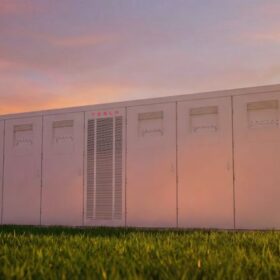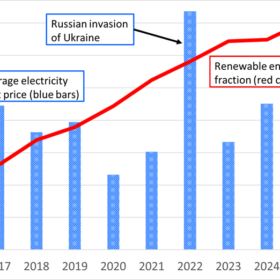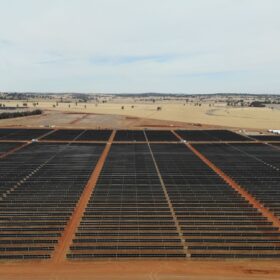Australia’s largest thermal storage project and one of the country’s most advanced industrial decarbonisation initiatives has successfully completed its pre-feasibility phase in collaboration with Western Australian-based global mining and energy company Tronox, global professional services company GHD, and another diversified global mining company.
Based on the study’s findings, MGA Thermal’s thermal energy storage (TES) technology is economically competitive with traditional fossil fuel technologies at an industrial scale. TES works as a highly flexible dispatchable asset, offering industrial companies a scalable means of electrifying high-grade process heat, reducing energy costs, emissions, and reliance on fossil fuels.
The study investigated the feasibility of a 180 MWh TES project capable of delivering 20 tonnes per hour of steam to an industrial site. The project will be connected to Western Australia’s South West Interconnected System (SWIS) and can deliver significant network benefits, including load shifting. Once completed, the TES system will position Western Australia at the forefront of decarbonisation for industrial heating applications.
Western Australia’s minerals and processing industry, a cornerstone of the state’s economy, which employs thousands of workers and generates billions in export revenue, is now facing a critical decarbonisation challenge.
“Without viable clean steam solutions that remove reliance on natural gas, carbon-intensive industries face an uncertain future as global markets increasingly demand low-carbon products,” said Chris Nelson, CEO of Knode.
“Commercialising and scaling new technologies is challenging, and we’re adopting an innovative approach that engages multiple industrial stakeholders upfront to co-develop this industry-defining asset. By derisking the technology and business case at scale, the project has the potential to accelerate rollout for these stakeholders across their facilities globally.”
Industrials are motivated to decarbonise where it is economically viable to do so. Sectors heavily dependent on high-temperature heat – like mineral processing, refining, food and beverage, chemical production, and materials manufacturing – require stable, continuous power for operations, which has historically presented a barrier to the adoption of intermittent renewable energy.
Thermal energy storage is a firming technology that stores intermittent renewable generation and delivers stable, continuous power 24×7. Access to low-cost renewable energy will be a critical factor between long-term international competitiveness and the closure of economically vital industrial facilities in Australia.
“Knode and MGA Thermal are pioneering Australia’s largest industrial-scale thermal energy storage project that represents a genuine breakthrough in industrial decarbonisation,” said Mark Croudace, CEO of MGA Thermal. “This project not only validates the commercial viability of MGA Thermal’s technology at scale, but also demonstrates its applicability to high-temperature industrial heat processes, a critical need that few other renewable technologies can effectively address.”
The success of the pre-feasibility study builds on the successful launch of MGA Thermal’s 5 MWh commercial-scale demonstration project in Australia and demonstrates strong market validation with multiple industry participants.”
The project is now preparing to enter the Front-End Engineering Design (FEED) phase, with construction targeted to commence in 2026 and operations beginning in late 2027. Once complete, it will represent the first commercial-scale deployment of MGA Thermal energy storage for industrial heat applications.






By submitting this form you agree to pv magazine using your data for the purposes of publishing your comment.
Your personal data will only be disclosed or otherwise transmitted to third parties for the purposes of spam filtering or if this is necessary for technical maintenance of the website. Any other transfer to third parties will not take place unless this is justified on the basis of applicable data protection regulations or if pv magazine is legally obliged to do so.
You may revoke this consent at any time with effect for the future, in which case your personal data will be deleted immediately. Otherwise, your data will be deleted if pv magazine has processed your request or the purpose of data storage is fulfilled.
Further information on data privacy can be found in our Data Protection Policy.